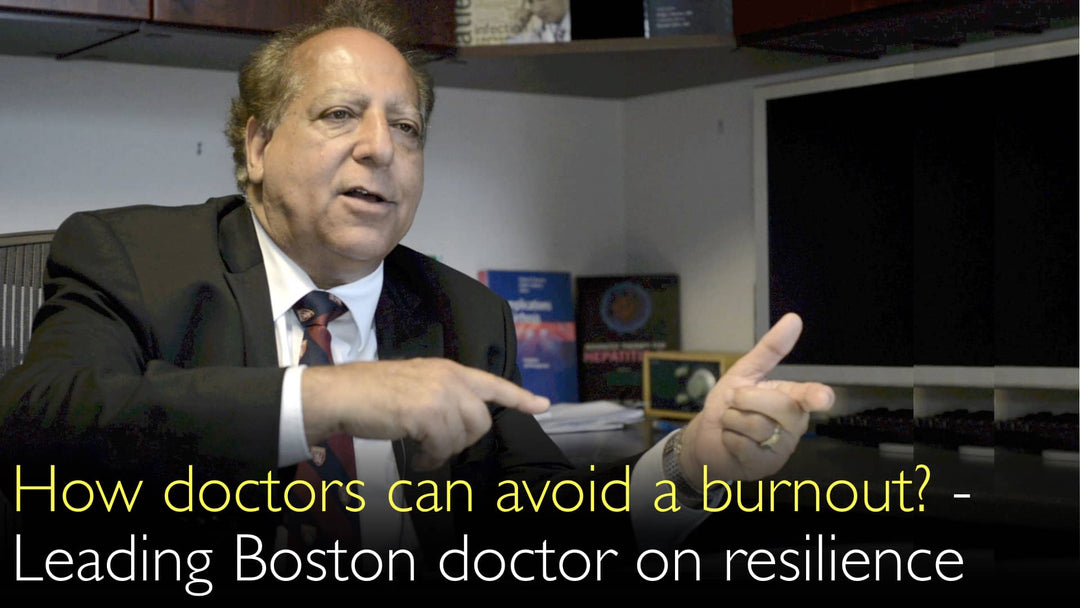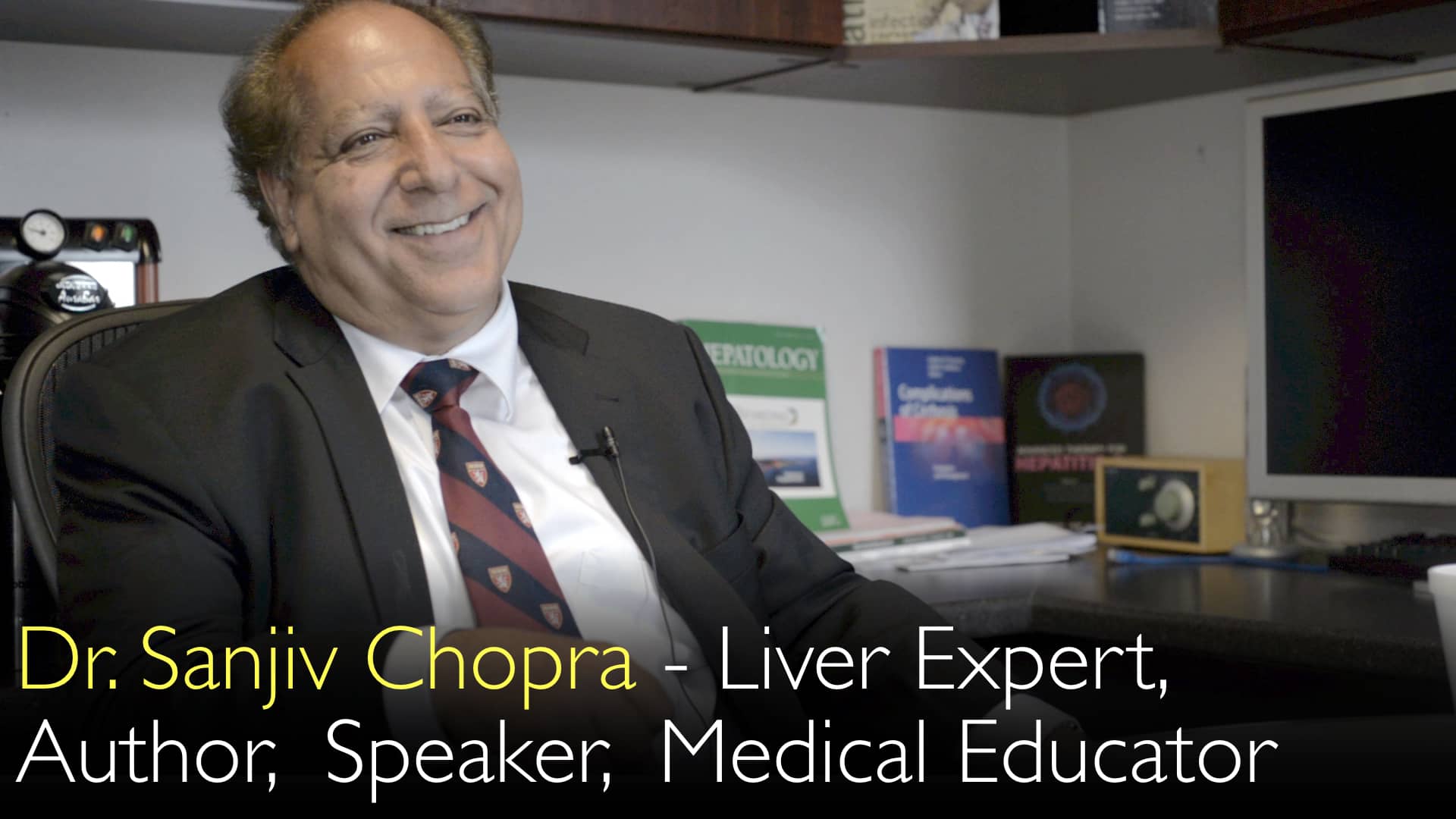Dr. Sanjiv Chopra, MD, a leading expert in physician wellness and burnout prevention, explains the alarmingly high suicide rates among healthcare professionals and outlines practical, cost-effective strategies for medical institutions to foster resilience. He emphasizes the critical importance of validation, flexibility, and social connectedness in restoring joy in medicine and preventing the costly consequences of burnout, including medical errors and high staff turnover.
의사 소진 예방: 의학에서 회복탄력성과 즐거움을 위한 전략
목차 바로가기
놀라운 소진 통계
의사 소진은 의료계의 심각한 위기로, 산지브 초프라(Sanjiv Chopra) 박사가 “경이로운”이라고 표현한 통계가 이를 뒷받침합니다. 미국 남성 의사의 자살률은 일반 인구보다 1.2배 높습니다. 여성 의사의 경우 더욱 심각해 자살 위험이 2.2배나 됩니다. 치과의사는 가장 극단적인 위험에 처해 있어 자살률이 국가 평균의 5배에 달합니다.
초프라 박사는 이 위기의 원인으로 점점 늘어나는 행정 업무와 서류 작업 속에서 의사들이 그 어느 때보다 열심히 일하는 점을 꼽습니다. 무엇보다 중요한 것은 그들의 엄청난 노력에 대해 제대로 인정받지 못한다는 느낌으로, 이는 전문직으로서의 즐거움을 앗아가고 고립감과 절망감을 불러일으킵니다.
간단한 인정 전략
의사 소진 대응은 직원들이 스스로 가치 있다고 느끼게 하는 간단하고 저렴한 인정 행동에서 시작됩니다. 산지브 초프라 박사는 병원이 직원들을 위해 물, 커피, 견과류, 과일 등 건강한 간식을 쉽게 이용할 수 있도록 제공할 것을 권합니다. 기관 입장에서는 사소한 비용이지만, 이러한 작은 배려가 관심을 보여주는 의미 있는 제스처가 되어 매일의 사기를 크게 끌어올릴 수 있습니다.
이러한 조치들의 재정적 타당성도 분명합니다. 초프라 박사는 소진된 의사나 간호사 한 명을 교체하는 데 수만 달러가 든다고 지적합니다. 더욱이 소진은 의료 오류 발생 위험을 높여 의료진과 기관을 값비싼 과실 소송에 노출시키게 됩니다.
지지적 환경 조성
의사의 회복탄력성을 키우기 위한 핵심 전략은 병원 내 전용 안식처 공간을 마련하는 것입니다. 초프라 박사는 이 공간이 직원들이 명상이나 기도를 하거나, 조용히 앉아 쉬거나, 음악을 들을 수 있도록 해야 한다고 강조합니다. 이는 스트레스가 많은 교대 중 중요한 정신적 재충전을 제공하며, 마음챙김과 중심을 잡기 위한 안전한 공간 역할을 합니다.
이 접근법은 의료 현장의 고강도 스트레스 환경을 고려해 의도적으로 이완 공간이 필요함을 인정하는 것입니다. 이러한 자원을 제공하는 것은 병원 행정부가 무자비한 생산성보다 직원들의 정신적 웰빙을 우선시한다는 것을 보여주는 실질적인 방법이며, 궁극적으로 장기적인 경력 지속 가능성을 지원합니다.
유연성의 힘
제도적 유연성은 의사 소진에 대한 강력한 해결책입니다. 초프라 박사는 명확한 예를 들어 설명합니다: 주 2회 아이를 어린이집에 데리러 가기 위해 오후 3시 30분에 퇴근해야 하는 직장인 어머니를 배려하는 것입니다. 그녀가 교통 체증 속에서 스트레스 받으며 서두르게 하는 대신, 약간의 급여 조정이나 주말에 시간을 보충하는 방식으로 해결할 수 있습니다.
산지브 초프라 박사는 또한 한 명의 전일제 의사 대신 두 명의 시간제 의사를 고용하는 것과 같은 창의적인 인력 모델을 옹호합니다. 이러한 유연성은 더 나은 업무와 삶의 균형을 가능하게 해 소진을 예방하고, 소모와 직업 이탈로 이어지는 지속적인 긴장을 완화합니다.
Google의 교훈
사회적 연결과 경험적 보상이 금전적 보너스보다 더 큰 가치가 있다는 점은 산지브 초프라 박사가 Google의 사례로 설명합니다. 큰 현금 보너스를 주는 대신, 회사는 최고 성과자를 배우자와 함께 전액 지원되는 8일간의 코스타리카 여행에 초대했습니다.
결과는 압도적이었습니다. 참가자들은 커플당 18,000달러가 든 이 여행이 10만 달러 또는 20만 달러의 수표보다 훨씬 더 가치 있다고 보고했습니다. 초프라 박사는 이 경험이 네트워킹을 촉진하고 개인적 관계를 강화하며 지속되는 기억을 만들어냈다고 지적합니다—돈으로는 할 수 없는 방식으로 직원들을 진정으로 인정해준 것입니다. 그는 의료 기관들도 공개적 인정, 상장, 개인적 성취를 축하하는 이메일을 통해 이 원칙을 적용할 것을 촉구합니다.
의대생 소진 위기
불안하게도, 소진 위기는 현직 의사에만 국한되지 않고 훨씬 일찍 시작됩니다. 초프라 박사는 미국 3학년 의대생의 60%가 이미 소진 증상을 보인다는 최근 연구를 인용합니다. 이들은 아직 공식적으로 의료 경력을 시작하지도 않았는데도 훈련 시스템이 그들의 웰빙을 해치고 있습니다.
이에 대응해 산지브 초프라 박사는 의학에 즐거움을 되찾기 위한 문화적 전환을 요구합니다. 그는 획기적인 줄기세포 연구나 생체 기증자 이식과 같은 의학적 기적과 성취를 축하할 것을 권장합니다. 경험 많은 임상의들을 당황하게 한 훌륭한 진단을 내린 의대생의 이야기를 공유하는 것은 목적과 경이로움의 감각을 되살리는 데 도움이 되며, 이는 회복탄력성에 필수적입니다.
호스피스에서 배운 인생 교훈
초프라 박사는 호스피스 치료를 받는 사람들의 후회에서 도출된 삶의 우선순위에 대한 깊은 통찰로 마무리합니다. 그는 가장 흔한 다섯 가지 후회를 소개합니다: “더 많이 여행할 걸,” “친구들과 더 많은 시간을 보낼 걸,” “더 너그러운 사람이 되어 미안하다고 말할 걸,” “꿈과 열망을 좇을 용기를 낼 걸,” 그리고 “더 자주 사랑한다고 말할 걸.”
초프라 박사가 지적하듯, 임종을 앞둔 그 누구도 더 열심히 일하지 않았거나 더 많은 돈을 벌지 않은 것을 후회하지 않습니다. 의사를 비롯한 모든 전문가에게 주는 교훈은 분명합니다. 안톤 티토프(Anton Titov) 박사와의 이 인터뷰는 이 긴급한 행동 촉구로 끝납니다: 이러한 가치를 지금 당장 우리 삶에 스며들게 하라—관계, 용기, 사랑을 최우선으로 삼아 나중에 같은 후회를 하지 않도록.
전체 전문
산지브 초프라 박사: 제가 말씀드리고 싶은 다른 주제는 의사 소진과 회복탄력성입니다. 제가 자주 이야기하는 주제인데, 통계가 정말 놀랍기 때문입니다. 미국 남성 의사의 자살률은 일반 인구보다 1.2배 높습니다. 여성 의사의 경우 자살 위험이 2.2배나 됩니다. 치과의사는 자살률이 국가 평균의 5배에 달합니다.
우리가 무엇을 하고 있는 걸까요? 사람들은 점점 더 열심히 일한다고 느끼고, 처리해야 할 서류 작업이 많으며, 자신들의 노력을 제대로 인정받지 못한다고 느낍니다.
인간을 인정하고, 의학에 즐거움을 되찾아주며, 사람들이 가치 있다고 느끼게 하는 간단한 것들이 있습니다. 물, 커피, 견과류나 과일을 제공하는 것도 그중 하나입니다. 병원 입장에서는 소진에 비해 결코 비싼 비용이 아닙니다.
소진은 결국 사람들이 그냥 교체되는 결과를 낳습니다. 의사나 간호사 한 명을 교체하는 데 수만 달러가 듭니다. 소진되면 실수도 잦아져 소송과 의료 과실에 노출되기 쉽습니다.
우리는 병원에서 사람들이 편히 쉴 수 있는 환경을 만들어야 합니다. 둘째, 그들이 명상, 기도, 조용히 앉아 쉬기, 음악 감상을 할 수 있는 조용한 방이 필요합니다.
셋째, 우리는 훨씬 더 많은 유연성을 허용해야 합니다. 만약 여성이 병원에서 일하면서 주 2회 아이를 어린이집에 데리러 가야 한다면—다른 3일은 아마 남편이 데리러 갈 테니—그녀는 5시까지 거기에 도착해야 합니다. 우리는 그녀의 마지막 약속을 4시나 4시 15분에 잡을 수 없습니다.
그러면 그녀는 늦을까 봐 뛰고, 교통 체증에 걸리고, 어린이집 직원들은 불만을 갖게 됩니다. 그녀가 주 2일은 3시 30분에 퇴근하고, 월 한 번 토요일에 보충 근무를 하여 환자를 몇 명 더 보거나 약간의 급여 삭감을 받도록 하는 게 낫습니다. 동료 직원들을 돕는 방법도 있습니다; 한 명의 전일제 직원 대신 두 명의 시간제 직원을 고용할 수도 있습니다.
수분 보충, 침묵, 명상, 마음챙김, 운동, 시간적 유연성—그리고 그것을 인정해주기. Google은 몇 년 전 매우 흥미로운 실험을 했습니다. 최고 성과자들에게 10만 달러나 20만 달러의 보너스를 주는 대신—그들에게는 흔한 일이었죠—그들은 “여러분 모두 배우자와 함께 오세요. 8일간 코스타리카로 모시겠습니다. 모든 비용 지원됩니다”라고 제안했습니다.
그들은 코스타리카에서 좋은 시간을 보내고, 네트워킹을 하고, 이메일로만 알던 동료들을 만나고, 배우자들과 함께 했습니다. 이후 그들에게 물었습니다, “어느 것이 더 가치 있었나요? 이 코스타리카 여행, 아니면 작년에 받은 보너스 수표?” 모두가 “코스타리카 여행”이라고 답했습니다.
사회적 구조, 사회적 연결성은 우리 삶에서 매우 중요합니다. Google은 이 작은 실험을 통해 이를 입증해 보였습니다. 커플당 18,000달러가 들어 10만 달러보다 훨씬 적은 비용이었죠. Google이 돈을 아껴야 해서 한 것은 아니지만, 그렇죠? 하지만 이는 사람들을 인정하고, 상을 주고, “당신은 정말 대단해요”라는 증명서를 수여하고, 전체 그룹에 “아무개, 오늘 이식 서비스의 우리 사회 복지사님이 놀라운 일을 해내셨습니다! 정말 대단했고 환자 가족이 무척 감사해합니다…”라는 이메일을 보내는 것의 가치를 보여줍니다.
그냥 해보세요—우리가 할 수 있는 간단한 것들입니다. 브리검(Brigham)의 동료에 의한 최근 연구에 따르면, 미국 3학년 의대생의 60%가 소진 증상을 보입니다. 3학년 의대생은 아직 전문직을 시작하지도 않았어요! 우리가 그들에게 무슨 짓을 하는 건가요?
우리는 의학을 축하함으로써 즐거움을 되찾아야 합니다. 두 번 태어난 아기, 줄기세포 연구의 성과, 생체 기증자 이식의 성공—무슨 일이 일어났는지 보세요! 또는 의대생이 우리 모두를 당황하게 만든 놀라운 진단을 내린 이야기를 나누는 것도 좋습니다.
조금 덜 서두르려 노력하기. 네. 천천히 하세요! 저는 사람들이 말하는 다섯 가지 후회로 마치겠습니다. “더 많이 여행할 걸, 친구들과 더 많은 시간을 보낼 걸, 더 너그러운 사람이 되어 미안하다고 말할 걸, 꿈과 열망을 좇을 용기를 낼 걸, 더 자주 사랑한다고 말할 걸!”
누가 이 다섯 가지를 말할까요? 호스피스에 있는 사람들이 “삶에서 가장 큰 후회가 무엇인가요?”라고 물었을 때 하는 말입니다. 이것들이 그 다섯 가지입니다. 아무도 “더 열심히 일할 걸, 더 많은 돈을 벌 걸, 큰 맨션에 살 걸, 6개월마다 새 Tesla를 탈 걸”이라고 말하지 않습니다. 그렇죠?
이것들이 가장 큰 후회입니다. 핵심은 우리가 지금 당장 그것을 실천해야 한다는 것입니다. 우리 임종 때 이런 후회를 하지 맙시다.
안톤 티토브 박사, MD: 초프라 교수님, 이 매우 흥미로운 대담에 깊이 감사드립니다! 전 세계 많은 분들의 관심을 끌 것입니다. 다시 뵙기를 고대하겠습니다! 대단히 감사합니다!
산지브 초프라 박사: 대단히 감사합니다, 함께하게 되어 영광입니다!






